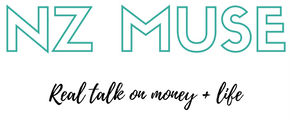
One of my fears about taking half of 2013 off to travel was that my fill-in at work would totally outshine me.
Fortunately it did the opposite – highlighting how much I juggle every day and how well I do it. It wasn’t just the people I work with every day who noticed but people externally who noticed the difference. That really struck home for me when I was chatting to someone – a person I don’t have much personal, frequent contact with but really respect – who went as far as to say our team had been obviously “screwed” in my absence.
His validation, as an outsider, was the key to altering how I see myself. That marked a real turning point for me.
I’ve always had a strange thing about self-confidence. I love what I write, at least until I hand it over, at which point I immediately start to hate it. Until very recently, I couldn’t ever stand to read my own work once published. I’ve always gotten good feedback about my work, but my own self-belief has always been patchy. There has never been a solid foundation underpinning it. Hello impostor syndrome!
This is only my second full-time job (although I have learned so very, very much over the past couple years) and I’ve basically always been the most junior on the team. I’m naturally reserved, I’m quiet in meetings not just because of shyness but because I don’t feel I have anything to contribute.
But I’m firmly mid-20s now. I’m not necessarily always the junior person, or even if I am, I now do increasingly have things to contribute. It’s expected of me – and I shouldn’t hold myself back because of how I feel inside. It’s time to adjust this mental perception I hold about who I am. I’m not 18 and clueless anymore.
I look older than I am, which I think has helped people take me seriously up till now. And I need to take myself seriously too, and not sell myself short.





Recent Comments